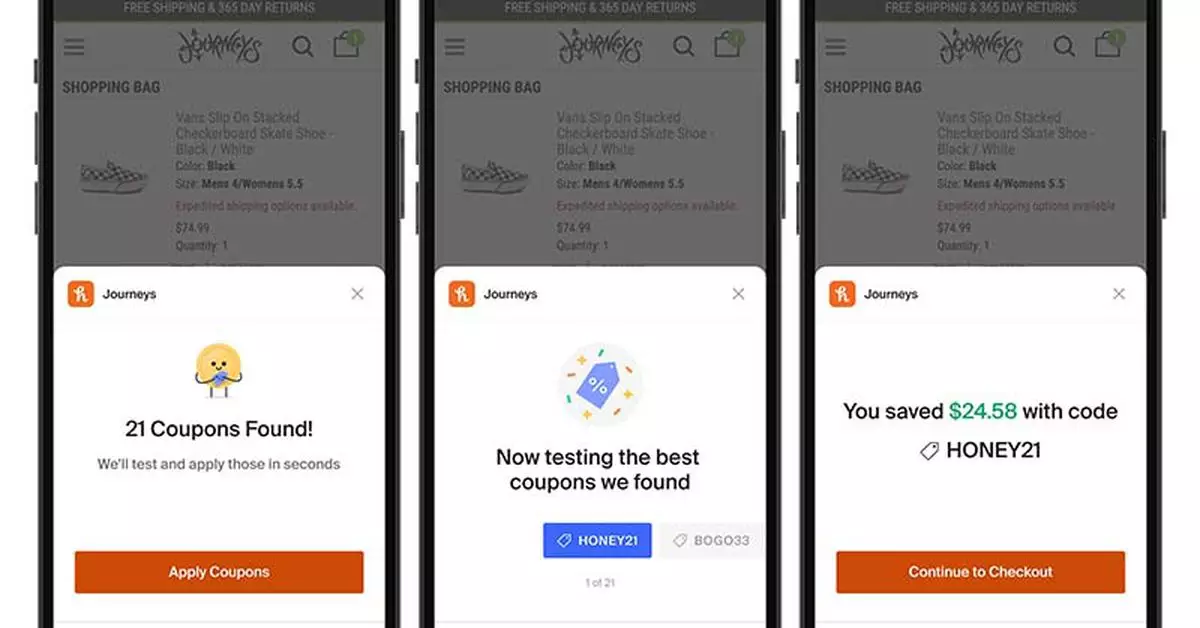In the ever-evolving landscape of online shopping, consumers are constantly on the lookout for tools that facilitate better deals and improve their purchasing power. PayPal Honey, a widely used browser extension that purports to find discount codes during online checkouts, has risen to prominence in this arena. However, recent claims by YouTuber MegaLag have raised substantial concerns about the ethical implications of Honey’s business practices, labeling the extension as a “scam.” This article delves deeper into these allegations and explores the broader implications for consumers and affiliate marketing.
At its core, PayPal Honey is designed to enhance the online shopping experience by automatically searching for and applying coupon codes at checkout. This functionality appeals to many consumers who wish to save money without investing time in manual searches. Contrary to the expectations set by Honey’s promotional rhetoric, MegaLag’s video highlights a crucial flaw: the extension often fails to provide the best available deals, favoring Honey’s own offers over potentially more substantial discounts found through straightforward internet searches.
The promise that Honey will “find every working promo code on the internet” appears to be more aspirational than factual. Instead, it raises questions about the commitment of the tool to truly service the consumer’s best interests. How often are users led to believe they are getting the best deals when, in reality, they might be settling for less?
The most disturbing allegation brought forth by MegaLag is that PayPal Honey siphons affiliate revenue away from content creators and influencers who work hard to guide consumers to products via their links. Instead of giving credit to those who promoted the products, Honey purportedly substitutes its tracking links at the checkout stage. This practice undermines the trust consumers place in influencers and affects the revenue streams that creators rely upon.
This issue extends beyond mere financial implications. It can potentially erode the bond of trust between consumers and influencers, as the community may feel manipulated by tools that promise savings while simultaneously undermining those who recommend them. MegaLag is not alone in voicing these concerns; other voices within the tech community echo similar sentiments, recounting previous instances where partnerships with Honey were reconsidered due to these practices.
A representative from PayPal, Josh Criscoe, responded to MegaLag’s allegations by asserting that Honey adheres to industry standards, including the last-click attribution model that has been used widely across digital marketing. While this may be standard practice, it does not necessarily vindicate Honey’s methods. The assertion that they follow “rules and practices” may come across as a deflection rather than an acknowledgment of consumer discontent.
Critics argue that just because a practice is widespread does not mean it is ethically sound. In this regard, the focus shifts away from legality and toward morality, challenging companies like PayPal to reconsider how their technologies impact not just consumers but also the creators who help drive sales through established trust.
The revelations surrounding PayPal Honey force consumers to reassess their reliance on such browser extensions. While the intention behind using tools like Honey is to maximize savings, shoppers must become increasingly vigilant about the potential costs associated with these conveniences. There is a growing need for transparency from tech companies about their algorithms and practices that could influence consumer decisions without their knowledge.
With discussions like this gaining traction in digital circles, consumers are encouraged to explore multiple avenues for savings, whether through manual search efforts or alternative coupon platforms. To foster a more equitable digital shopping landscape, brands must put an emphasis on fair practices that respect both consumers and the influencers who help them navigate the complex world of online retail.
The controversy surrounding PayPal Honey is a cautionary reminder of the complexities inherent in online commerce. Whether or not the allegations against Honey hold substantial weight, the discourse they have generated is vital for guiding consumers toward more informed choices. Amidst competitive landscapes, the ultimate lesson may be that convenience should never come at the cost of integrity and transparency. As users become savvier and demand better practices, companies must adapt or risk losing both trust and market share in an environment that thrives on ethical consumerism.


Leave a Reply